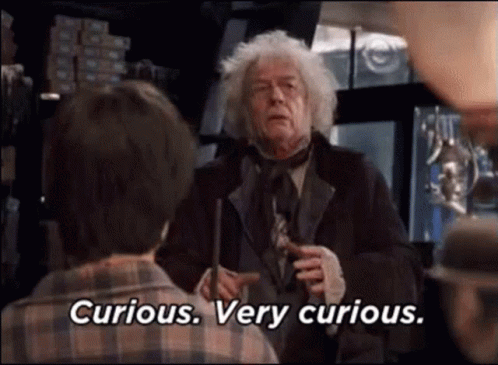The Pathos Problem: Why asking the right questions could transform your career
Copywriters and other creatives often seek external approval. While there's nothing wrong with that per se, this emotional burden forces you to behave in a certain manner.
That's what Rob Fitzpatrick, the author of The Mom Test, calls "the Pathos problem." It means your questions and actions are dictated by your inner desire to be approved. In other words, this hinders your research and causes you to lose clients and earn less.
Today, I'll show you how to Detroit Smash your Pathos problem.

You can subscribe to my newsletter and receive this and similar advice daily in your inbox.
What exactly is the Pathos problem?
Let's say your friend bought the latest iPhone. You're also interested in the new iPhone, but you're not convinced whether it's worth it. So you meet with your friend, and you want to learn more about the new iPhone.
Most people seeking approval will ask, "Are you happy with the new iPhone?" While there's nothing wrong with this question, it is biased. That means it's shrouded with what you wish you hear.
That's why, nine out of ten times, you'll get the answer "Yes, I'm happy." Why? Because your question baited them unconsciously to give you that answer.
Let me explain.
Your friend made an emotional decision to buy the new iPhone. So when you ask them, "Are you happy with the new iPhone?" you're baiting their brain into justifying that purchase logically. And the brain will always find a way to do it.
But on the flip side, the way you asked the question also implies you're hoping they're happy with the new iPhone. Subconsciously, you're seeking external approval, a logical reason, to buy the new iPhone.
That's the Pathos problem.
You ask biased questions subconsciously because you hope the answers will validate your desire. That means you'll get the answers you wish for, but they are often not honest, accurate, or valuable.
Why do Pathos-based questions produce the wrong answers
At its core, pathos-based questions are emotionally charged. These questions carry an emotional burden that's seeking approval, not objective insight.
That's why asking, "Are you happy with the new iPhone?" while holding an iPhone signals other people, "This person likes the iPhone, so I should tell them good things about it."
Contrary to if you were holding a Samsung, the signal would be, "This person doesn't like the iPhone, so I should try to convince them how superior the iPhone is. That's why I bought it!"
Are these responses an accurate reflection of your friend's opinion and experience? No, it's not (I have a client dialogue example below that shows this). And it all comes from the way you phrased your initial question.
How to ask the right questions (without the Pathos problem)
Let's continue with the iPhone example to keep things simple. In the following scenario, we want to discover whether any new features on the latest iPhone are worth it.
So a Pathos-free question you can ask could be, "What prompted you to buy the latest iPhone?" while hiding your smartphone to avoid biased responses.

Now, this is the first question, and the response will be superficial at best. But you'll get one or more features listed as the reason.
That's why we'll poke a bit more and ask, "Tell me more! When was the last time you used either of those new features?"
This question differs from all the previous questions because it asks the person to respond based on their experience. It forces them to tap into their real experience and respond more truthfully.
In other words, your friend's response will be based on what they actually do instead of what they think or feel they should say (or what you'd like to hear).
Let's put this into a copywriting-specific scenario.
You can subscribe to my newsletter and receive this and similar advice daily in your inbox.
Ask the right questions to get the right answers
Here's an example of a few questions I ask a potential client interested in working with me. Below is a dialogue based on a real conversation I had with a client.
This client approached me to help them make money from their email list.
Here's how the conversation went:
Robert: How many emails do you send to your list?
Client: I don’t send anything really.
Robert: Why not?
Client: Well it’s something I never took seriously.
Robert: When’s the last time you did try?
Client: 3 months ago
Here's what I discovered with three simple Pathos-free questions so far:
- The list is dormant and needs to be re-engaged
- The client has trouble sending emails and wants a done-for-you (DFY) solution
- The client doesn’t seem to see the return on investment (ROI) of email, which means they're not that experienced with email marketing;
Then, I need to dive deeper and understand a bit more:
Robert: What are your big goals and focuses right now for the business
Client: I want to increase revenue so I can outsource more work. My immediate goal is to launch my new course.
Equipped with all this, it's time to switch to pitch mode.
Robert: So, first, we need to engage the email list. You haven't been in touch with them regularly, so if we sell them right off the bad, we risk antagonizing them. That's why I'll write you a short engagement campaign. In the meantime, we'll work on a launch campaign for your new course. I'll write and schedule everything in your email service provider so you don't have to lift a finger. Plus, I'll use a proven launch campaign that has helped me generate $6 per subscriber.
Client: That makes so much sense!
Robert: Yes, and since you've not done any of the above, you must've missed out on a lot of sales. In the past, I've charged between $X and $Y for this type of service."
See how the entire pitch is based on what the client told me (without me guiding him to the solution). At no point did I tell him, "You need to send daily emails." No, I was just curious about their current situation and then pitched them what made the most sense based on their situation.

Up until this point I've told you how to ask the right questions when researching. This will help you optimize your research. When your research is on point, your copy becomes sharper and converts better.
On the other side, you also learned how to ask your clients the right questions. Which, when done right, should position you as the only viable choice in their mind.
There's one more step I need to help you with: charging more. This may seem counterintuitive, but it is the simplest step of all. But it works best after you do everything I described so far... AND then bump your current rate by 25%.
That's all it takes.

How do you spot the real answers from the pathos-biased answers?
This is sometimes easier said than done. But there's a simple question you need to ask yourself here that will give you a 100% success rate. The question: "Is this based on a real personal experience?"
If the answer is "Yes," then you're onto something. But you should also check for some regular pointers that could help you.
For example, on Amazon, you can see whether the person leaving a review has a "verified purchase" badge. If they don't, then that comment may not be as relevant as another with the "verified purchase" badge.

Assuming you spot the real answers, then you have to dig for more. You then look for these details in your research:
- Is there a story here?
- What makes this experience great?
- What makes this experience awful?
- Why haven't they been able to fix this already?
- What would make the offer I'm working on irresistible for this audience?
There's more to this, obviously, but this is the gist.
You can subscribe to my newsletter and receive this and similar advice daily in your inbox.
Questions to help you transform your career
Unlike the other questions I listed above, this one is just for you. It's a question you need to ask yourself. And the answer will be unique to you.
The question?
"What's the most important thing in your life?"
I know, it's not sexy. But it's necessary because it will help put everything else in perspective. I wrote a detailed guide you can read here to help you determine the answer to this question.
Member discussion